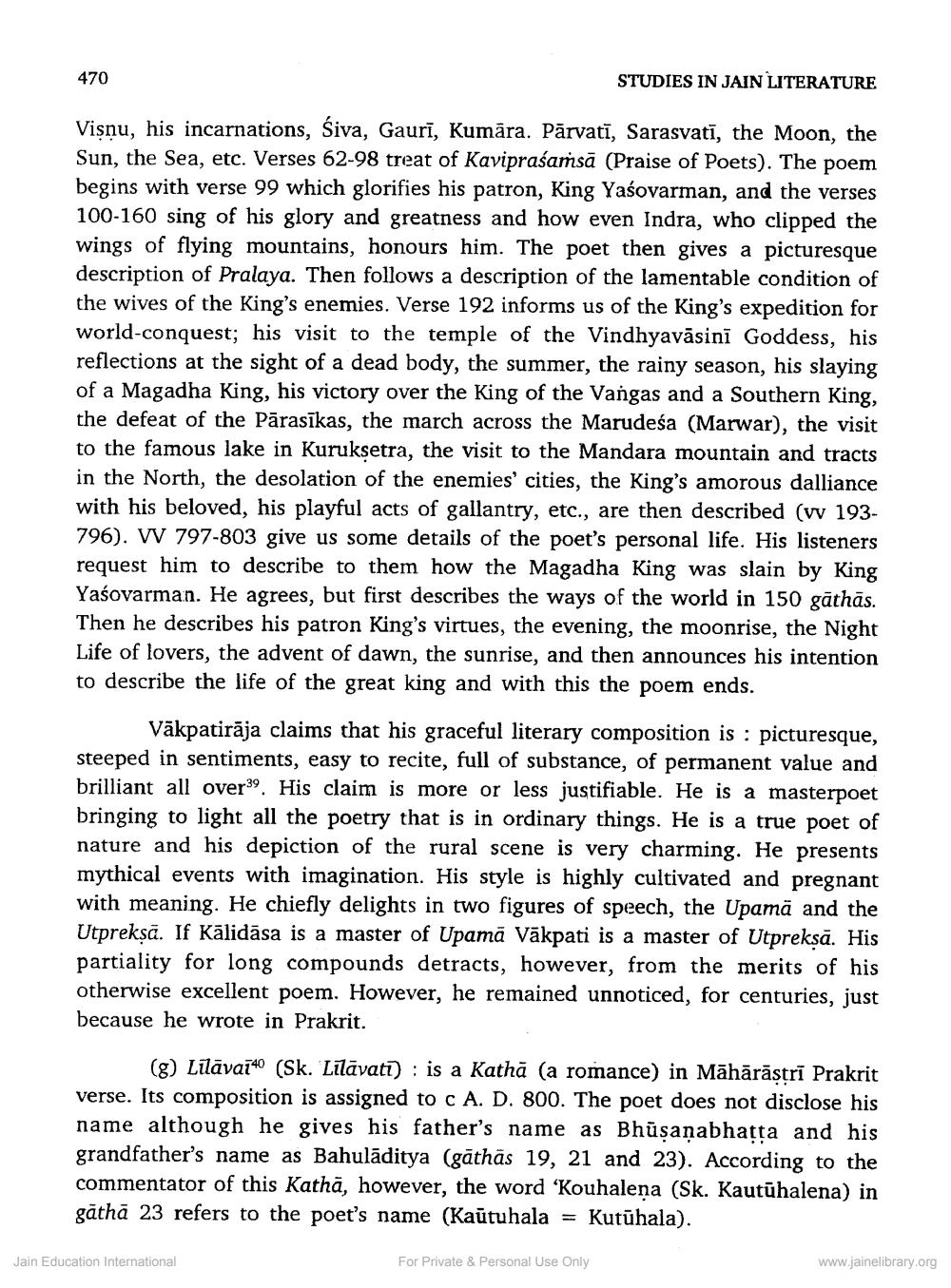________________ 470 STUDIES IN JAIN LITERATURE Visnu, his incarnations, Siva, Gauri, Kumara. Parvati, Sarasvati, the Moon, the Sun, the Sea, etc. Verses 62-98 treat of Kaviprasamsa (Praise of Poets). The poem begins with verse 99 which glorifies his patron, King Yasovarman, and the verses 100-160 sing of his glory and greatness and how even Indra, who clipped the wings of flying mountains, honours him. The poet then gives a picturesque description of Pralaya. Then follows a description of the lamentable condition of the wives of the King's enemies. Verse 192 informs us of the King's expedition for world-conquest; his visit to the temple of the Vindhyavasini Goddess, his reflections at the sight of a dead body, the summer, the rainy season, his slaying of a Magadha King, his victory over the King of the Vangas and a Southern King, the defeat of the Parasikas, the march across the Marudesa (Marwar), the visit to the famous lake in Kuruksetra, the visit to the Mandara mountain and tracts in the North, the desolation of the enemies' cities, the King's amorous dalliance with his beloved, his playful acts of gallantry, etc., are then described (w 193796). W 797-803 give us some details of the poet's personal life. His listeners request him to describe to them how the Magadha King was slain by King Yasovarman. He agrees, but first describes the ways of the world in 150 gathas. Then he describes his patron King's virtues, the evening, the moonrise, the Night Life of lovers, the advent of dawn, the sunrise, and then announces his intention to describe the life of the great king and with this the poem ends. Vakpatiraja claims that his graceful literary composition is : picturesque, steeped in sentiments, easy to recite, full of substance, of permanent value and brilliant all over39. His claim is more or less justifiable. He is a masterpoet bringing to light all the poetry that is in ordinary things. He is a true poet of nature and his depiction of the rural scene is very charming. He presents mythical events with imagination. His style is highly cultivated and pregnant with meaning. He chiefly delights in two figures of speech, the Upama and the Utpreksa. If Kalidasa is a master of Upama Vakpati is a master of Utpreksa. His partiality for long compounds detracts, however, from the merits of his otherwise excellent poem. However, he remained unnoticed, for centuries, just because he wrote in Prakrit. (g) Lilavai40 (Sk. Litavati) : is a Katha (a romance) in Maharastri Prakrit verse. Its composition is assigned to c A. D. 800. The poet does not disclose his name although he gives his father's name as Bhusanabhatta and his grandfather's name as Bahuladitya (gathas 19, 21 and 23). According to the commentator of this Katha, however, the word 'Kouhalena (Sk. Kautuhalena) in gatha 23 refers to the poet's name (Kautuhala = Kutuhala). Jain Education International For Private & Personal Use Only www.jainelibrary.org




